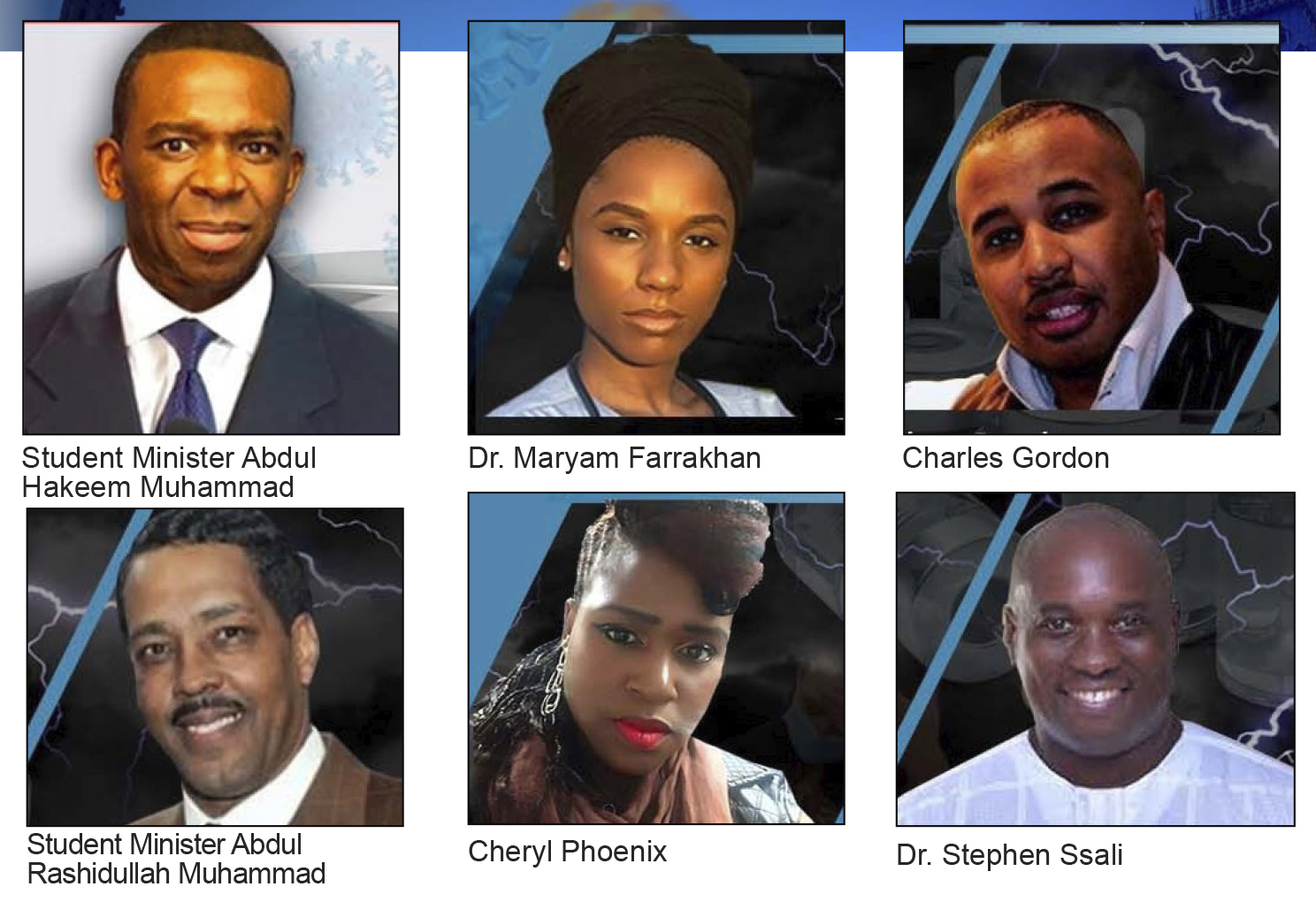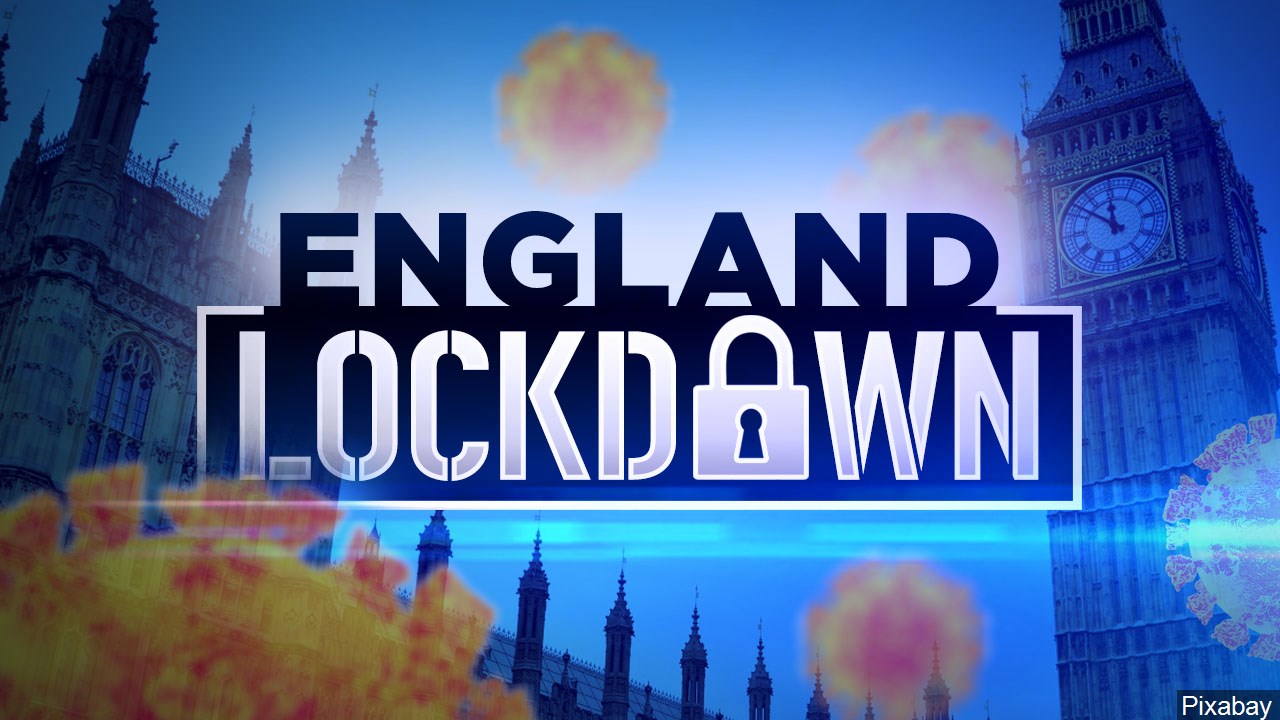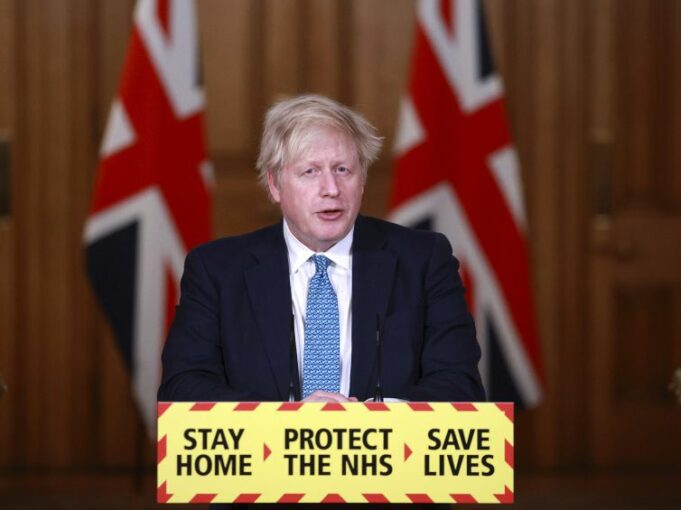The Covid-19 pandemic has not spared countries around the world, including the United Kingdom. In the UK, people from Black and minority ethnic communities (BAME) are getting hit hard. A report released earlier this year by the Intensive Care National Audit and Research Centre found that 35 percent of almost 2,000 patients with Covid-19 were from a BAME background, despite forming only 13 percent of the UK population, reported The Voice, Britain’s Black news publication.
Fourteen percent of those with the most serious cases were Asian and the same proportion were Black, according to the study, reported voice-online.co.uk. Now the UK is dealing with an additional concern, a new strain of the pandemic.
Dr. Maryam Farrakhan was staying at a hotel in the United Kingdom when news stations began reporting on the new strain of Covid-19.
“She was actually here in the United Kingdom with us last week, and she was representing from her hotel room, only for us to come into the knowledge that this new strain, this mutated strain or mutation had taken place in the United Kingdom. And she had planned to be here for an extra couple of weeks or so, but it seemed as if Britain became a pariah state overnight, and all the countries that encircled us here were closing the doors,” said Student Minister Abdul Hakeem Muhammad, the European Representative of the Honorable Minister Louis Farrakhan and the Nation of Islam, during a Zoom conversation.
Student Minister Abdul Hakeem Muhammad started a virtual series, “Community Question Time,” where he and guests from the UK and abroad share their insight about Covid-19 vaccines and the pandemic. Part one of the series was held on Dec. 20, part two was held on Dec. 27 and part three was held on Jan. 3. He kicked part two off by talking about the mutant strain of Covid-19.

“The question that came up in my mind as I was traveling to the airport with Dr. Maryam was, does that make the old vaccine now obsolete? The mere fact now that there’s a mutated version of the Covid-19?” he questioned.
Dec. 27 panelists included Cheryl Phoenix from the UK, founder of The Black Child Agenda; Maureen Ngozi Obi-Ezekpazu, a human rights lawyer in the UK; Dr. Stephen Ssali from the UK, Uganda and CEO of the Mariandina Research Foundation; Charles Gordon, founder of a newly registered political party, Taking the Initiative Party; Student Minister Abdul Rashidullah Muhammad of Muhammad Mosque No. 26 in San Francisco, Calif. and Dr. Maryam Farrakhan, a qualified doctor of medicine based in Washington D.C. She is also the granddaughter of Min. Farrakhan.
On Jan. 5, the total number of Covid-19 cases in the UK was 2.71 million, and the total number of deaths was 75,000. But Jan. 4 saw 26,626 Covid-19 patients in hospitals in England, which is an increase of more than 30 percent from a week prior and is 40 percent above the highest level of the first wave in the spring, according to the Associated Press.
Prime Minister Boris Johnson announced on Jan. 4 that England will be on lockdown until mid-February in an effort to combat the new Covid-19 strain. On the same day, the Oxford-AstraZeneca vaccine started rolling out. People were already taking the Pfizer vaccine in the UK.
However, some Blacks in the UK are wary of Covid-19 vaccines, according to Al Jazeera. The media outlet quoted community care worker Mycall Isrell, who is from a Caribbean background, and said he would consider getting the vaccine because it was a question of “morals and ethics,” to protect those he works with.
“However, he has fears because of unethical medical experiments on Black communities in the past. ‘Any fear of vaccines, medicines and cures, it’s almost like it’s in the Black DNA,’” he said, according to Aljazeera.com in an article, “UK: Why do some ethnic minorities fear the coronavirus vaccine?”
The historical modern medical and scientific experimentation and atrocities inflicted on Black people by Western governments, particularly the U.S. has lead to questions and feelings of mistrust around the world. “Real or imagined, the historical facts are there and they’re still happening,” said Mr. Isrell, reported Al Jazeera. “They’re being chipped down and broken away like the Berlin Wall. But some of those structures are still in place,” he added.
On July 4, 2020, Min. Farrakhan warned Black people not to take the Covid-19 vaccines during his message titled “The Criterion.”
“I say to my brothers and sisters in Africa, if they come up with a vaccine be careful. Don’t let them vaccinate you with their history of treachery through vaccines, through medication. Are you listening? I say to the African presidents, do not take their medications. I say to those of us in America, we need to call a meeting of our skilled virologists, epidemiologists, students of biology and chemistry and we need to look at not only what they give us, we need to give ourselves something better,” said Min. Farrakhan.
“My teacher told me, don’t speak to some, speak to the whole,” the Minister said, referring to the Most Honorable Elijah Muhammad, patriarch of the Nation of Islam.
“I’m speaking for Black America, for Hispanic America, for the Native American and for those who are desirous of life. They’re making money now plotting to give seven billion five hundred million people a vaccination,” he added.
“Our people all over the world, those that are oppressed, trust the guidance and the counsel given by the Honorable Minister Louis Farrakhan. And he has spoken forthrightly and definitively and uncompromising way about the importance and significance of this Covid-19,” Student Minister Abdul Rashidullah Muhammad recounted in the Dec. 27 virtual gathering. “He warned our people all over the earth not to take it.”
Dr. Ssali also thanked Minister Farrakhan “for being a visionary in this area, because he was leading the alarm to say, do not take this vaccine.”
According to the Office for National Statistics, from March 2 to July 28, 2020, the Covid-19 mortality rate of Black people in England was twice that of Whites. Still, when asked if they would be taking the Covid-19 vaccine, all of the Dec. 27 Zoom panelists said no. Charles Gordon said people should have the ability to choose whether or not they want to take the vaccine.
“At the moment, it does feel as if we’re largely being railroaded into taking this vaccine, and there’s a lot of pressure around taking this vaccine, even if they’re not directly passing a law that says specifically you have to take the vaccine. What they are doing is saying, travel may be restricted … you may not be allowed to work,” noted Dr. Ssali. “All of those things are a basic infringement of our human rights as a people,” he added.
He also questioned why China, where Covid-19 emerged, doesn’t need a vaccine but the UK and America does.
“What is this bullying about? What is the real agenda behind this vaccine? Why is it China didn’t need the vaccine to recover? These are all questions that I think everyone should ask themselves before committing to a decision on it one way or the other,” he said.
Student Minister Abdul Hakeem Muhammad listed some of the possible consequences for not taking the vaccine. Those included not being able to travel, send children to school, and possibly not being able to get into sports stadiums and conference venues. The Associated Press reported that Britain has secured the rights to 100 million doses of the Oxford-AstraZeneca vaccine and that Prime Minister Boris Johnson’s goal is to have 13 million people vaccinated by mid-February.

The vaccine isn’t compulsory for children in school, yet, but Ms. Cheryl Phoenix noted that the law states that children 13 and over can sign and can agree to take the vaccine without parental permission.
“If something goes wrong with regards to any medication given, if something goes wrong with regards to the vaccine that is given and if the person dies or is severely ill, or probably becomes a vegetable, whatever it may be, you have no comeback or recourse,” she said. “You can’t sue anyone. You can’t take anyone to court.”
Ms. Obi-Ezekpazu advised people to be brave and courageous and to stand firm in saying no to the vaccine.
“Find out as much as you can, and then sit with yourself and realize what the truth is because no one else is going to tell you the truth. It will come from you in the end, but you got to do the work,” she said.
Dr. Ssali talked about the human body’s natural immune response and defense mechanisms and how vaccines have taken over and caused diseases, from cancer and diabetes to autism and ADHD. He recommended several alternatives to vaccines, including vitamin C, zinc, thyme and onions.
Dr. Maryam Farrakhan said Black children need to be pushed into STEM (science, technology, engineering, mathematics), medicine and research. “If we’re not trying to bring in a new world and change and thinking about real solutions that will take us not just 5, 10 and 20 years, but generations into the future then we’re not thinking about real solutions, because these are temporary fixes. Yes, building our immune system is important. Yes, being educated is fundamental,” she said.
“But if we’re not pushing our young people into STEM, into science, into research and then have the desire and the ability to bring in institutions and create hospitals, then what are we doing?”
Dr. Farrakhan took up residence in Cuba for seven years to study medicine at the Latin American School of Medicine in the island nation. She received her diploma on July 28, 2020. She said she felt that Cuba was one of the most prepared for the Covid-19 pandemic, because the people learned how to practice medicine with limited resources.
“You may not have all the resources or all of the equipment and material that you need, and I’m talking about us as Black people,” she said. “We may not have everything that we need, but that does not mean that we don’t have something that we can use to help push us further and to help get us where we need to be. So you use what you have until you have what it is that you need.”
Student Minister Abdul Rashidullah advised Black people to look at Cuba’s model.
“They send their doctors and professionals all over the world to help countries in need, because they’re an efficiently organized people based on an idea and an ideal, and we can do the same. We must do the same. If we’re going to take our people where they need to go, we’re going to survive all right enough, but we’ve got to do our part, and our part now more than ever is to take this message,” he said. (Final Call staff contributed to this report.)













